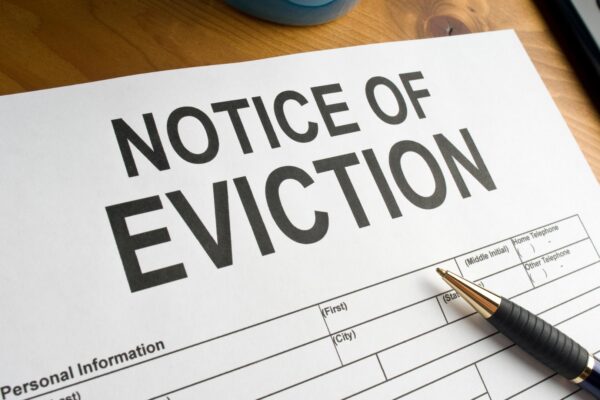There are some key changes to the law expected for 2022 which will affect landlords. We’ve summarised them below so you can stay up to date.
Remote Right to Rent Checks are to Continue until April 2022:
Landlords renting properties in England are required to confirm that all adult tenants have the right to rent in the UK.
During the pandemic, the government introduced new changes allowing landlords to perform these checks remotely. Due to the success of this measure, the government has now announced that this system will continue until April 5th (inclusive). Landlords will therefore continue to be able to:
- Perform checks over video calls
- Accept scans or photos of documents for checks from tenants using email or a mobile app, rather than sending originals
- Use the Home Office Landlord Checking Service if a prospective or existing tenant cannot provide any of the accepted documents
This decision appears to be, at least in part, designed to allow the government a bit of time to consider the best way to implement a fully digital solution in the future. They have already decided that from the 6th April, individuals with Biometric Residence Card (BRC), Biometric Residence Permit (BRP) and Frontier Worker Permit (FWP) will only be able to have their right to rent checks completed using the government’s online service. (These documents are generally only applicable to non-UK nationals.)
It appears that the government is leaning towards a fully digital solution for all in the future and we will be sure to keep you updated. In the meantime, you can read what the government has to say about it here.
Renters’ Reform Bill + Section 21 Evictions:
It is now expected that the Renters’ Reform Bill will be published this year. This white paper has been in the works for a little while and is expected to cover many topics, but perhaps most significantly for our landlords, Section 21 evictions.
Section 21, or ‘no-fault’ evictions, allow landlords to take back possession of their property from assured shorthold tenants without establishing fault on the part of the tenant. The government has now committed to abolish Section 21 evictions, but rest assured, there will still be routes open to landlords who need to regain possession of their property, where needed.
It’s worth noting this will apply to tenancies in England only, essentially – Scotland has already abolished them, and Wales is moving to an entirely new tenancy type (see below).
The white paper is also expected to cover the idea of lifetime deposits – where a tenant would have one deposit which moved with them throughout their lifetime – amongst other improvements to renting standards.
However, it appears that these changes are still a little way off and many details are yet to be confirmed. Landlords who would like to learn more about what the government is planning can read more here.
Minimum EPC Ratings for Rental Properties:
An EPC rating tells you how energy efficient your property is and gives it a rating from A to G (A being most energy efficient). Landlords in the UK must have an EPC obtained once every 10 years. In Scotland, an EPC must be obtained prior to advertising, whereas in the rest of the UK an EPC must be in the process of being obtained during advertising, and then provided to tenants on move-in.
Since April 2018 it is illegal to rent any residential or commercial property in England or Wales with an EPC Rating below E, however, parliament is currently deliberating on a Minimum Energy Performance of Buildings (No. 2) Bill which has set out plans to increase the minimum EPC rating for buildings in England and Wales. This draft legislation would make a rating of C mandatory for EPCs by 2025 for new tenancies and 2028 for existing tenancies.
Again, this change seems to be a little way off yet, and there will likely be some exemptions, but it is definitely worth starting to think about it now.
Implementation of the Renting Homes (Wales) Act:
The Welsh government has announced its intention to implement the Renting Homes (Wales) Act 2016 on 15th July 2022. Private landlords in Wales will need to be prepared for many changes as a result.
After the 15th July, landlords will have to use a new type of contract, termed a “standard occupation contract”, and tenants will be known as “contract-holders”. All landlords will be required to provide a written copy of the occupation contract to their contract-holders, which will also be required to contain certain standard terms. Luckily, if you use OpenRent to set up your tenancy, we will always make sure that you are fully compliant!
Other changes include:
- Landlords will be required to give 6 months notice to end a contract in a ‘no-fault’ situation.
- Joint contract-holders will be able to leave and join a tenancy without the contract being ended for the other joint contract holders.
- Landlords will be required to keep the property structure and exterior in good repair.
Leasehold Reform:
The Leasehold Reform (Ground Rent) Bill is currently passing through the House of Commons. This bill is due to restrict ground rents for leases granted after the commencement date (the date the legislation comes into force).
Ground rents are the payments made by the leaseholder to the freeholder or landlord where the leaseholder owns the property on a long leasehold basis.
Historically, these payments have been set at a low level, however, in more recent years, freeholders have started to sell properties on long leases with higher ground rents to start, and then review these payments after a certain amount of time. This has made it very difficult for leaseholders to sell or remortgage their properties.
Therefore, this new bill will significantly reduce costs for many buyers, including landlords, who purchase a flat after this comes into force.
You can read all about the bill and ground rent issues here.
Cladding:
As of 10th January this year, the government has announced that leaseholders living in their own flats will not have to shoulder the costs of fixing dangerous and unsafe cladding. Instead, the costs will fall onto developers and cladding companies.
Previously, the burden of having to fix cladding has caused many problems for leaseholders. They have faced high costs, insurance/mortgage problems, and a huge backlog for EWS1 forms and confusion on when these are required. You can read more about the government’s new plans here.
New Fire Safety Requirements in Scotland:
By February, all homeowners in Scotland will be required to have an interlinked fire alarm system installed. This means that if one alarm goes off somewhere in the building, they all go off. This measure has been brought in in response to the Grenfell Tower disaster to allow more time for people to react to a fire in other parts of a building. From February, all homeowners will be required to have:
- 1 smoke alarm in the room where the occupant(s) spend most of their day.
- 1 smoke alarm in every circulation space on each story (e.g. landings and hallways).
- 1 heat alarm in the kitchen
Additionally, homeowners will need to make sure that they have a carbon monoxide detector installed for any carbon-fuelled appliances (e.g. boilers, heaters, flues). However, these do not need to be linked to the fire alarms. There are two types of interlinked fire alarms that meet the new regulations:
- Sealed battery alarms (which can be fitted by the homeowner).
- Mains-wired alarms (which should be installed by a qualified electrician).
For elderly and disabled homeowners, the Scottish government has pledged £500,000 to help with the cost and installation of these alarms. For more information, you can read the government advice here.




They do allow lower ratings where it is uneconomical to meet the requirements, although cost of solar panels are likely to below this threshold.
Given current and future electricity prices solar panels are a good idea for a lot of properties and you can charge higher rents to cover your costs while tenant is still better off. They still work for non south facing properties, if your roof is east/west they will generate circa 75% of a south facing roof which is still financially viable.